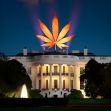Following last year’s recommendation from the World Health Organization (WHO), The United Nations Commission on Narcotic Drugs (CND) voted last week to delete cannabis from its most “highly addictive and highly liable to abuse” category and reclassify it as a drug with potential for therapeutic medical use.
CND’s categories, called Schedules, determine the controls that UN member-States are required to apply to narcotics. At its Vienna meeting on December 2, the CND followed WHO’s 2019 recommendations to change cannabis regulation from Schedule IV (highly addictive and highly liable to abuse and rarely used in medical practice) to Schedule 1 (highly addictive and highly liable to abuse).
This change recognizes the potential for cannabis to be used in medical practice. The cannabis plant, which has been classified as a Schedule IV substance for 59 years, will still be labeled as a controlled substance and will remain in Schedule I, but it will no longer appear on both lists. All other proposals regarding the reclassification of different parts of the cannabis plant to lower Schedules were defeated.
The WHO committee report included information about the dangers of cannabis use. While noting that it can cause dependence, it also outlined possible benefits, including reducing pain and nausea and moderating symptoms of diseases such as epilepsy, multiple sclerosis and anorexia. It also does not pose a significant risk of death.
The WHO concluded that cannabis is not 'liable to produce ill-effects' on the scale of other drugs in Schedule IV and that cannabis has significant potential therapeutic value.
The Schedule change was voted on by representatives from 53 different countries. It was approved by a vote of 27 to 25 with one abstention. The United States voted in favor of the measure, while Russia was one of the countries that opposed it. Under the new classifications, each country still retains control of its own policies and penalties. But international drug control treaties reserve their bans and most severe limits for Schedule IV substances. The vote may thus open a crack in US criminalization laws since the US Department of Justice’s guidelines require strict compliance with international treaties.
The vote followed nearly two years of expert scientific and medical review of the WHO recommendations.
Ethan Glick represented the US at the Vienna meeting. His balanced statement praised legitimate medical use and cited the US Food and Drug Administration’s approval of a cannabis extract to treat rare seizure disorders in children while reiterating public health risks, especially for children and pregnant women.
Marijuana supporters and the US cannabis industry, encouraged by last November’s votes that legalized marijuana in four more states, applauded the UN vote as another indication of growing national and international support. In the US, cannabis is illegal under federal law as per the Controlled Substances Act of 1970. However, 15 states now approve of its recreational use, while another 16 have decriminalized it and/or approved of its medical use.
Several additional proposals regarding some of the 100-plus chemical compounds known as cannabinoids were also voted on, but none passed except the main one that reclassified cannabis to Schedule I. The UN CND proposal that would have removed preparations containing cannabidiol or medicinal CBD from international control was voted down. It would have applied to substances containing less than 0.2% THC, the primary psychoactive component of the cannabis plant. CBD is a popular natural remedy used for ailments such as pain relief, anxiety and depression, and the adverse effects of cancer treatment. A mixture of state laws currently governs cannabidiol, a compound for non-prescription use.
Conor O'Brien of Prohibition Partners, a global industry analyst group, told NPR that WHO made its recommendations, “to open up the path to research and medical product development...that will hopefully encourage much activity in this field, which will in the future enable further liberalization of cannabis and patient access."
In a related action, on December 4, the US House of Representatives approved the Marijuana Opportunity, Reinvestment, and Expungement (MORE) Act which would decriminalize marijuana by removing it from the federal Controlled Substances Act. That bill would eliminate the confusing conflicts that currently exist between state and federal marijuana laws, but it has little chance of a vote in the Republican-controlled Senate this year.
The United Nations first got involved in supervising international drug controls in 1948. The Single Convention on Narcotic Drugs was established in 1961 and later through its 1972 amendments to limit narcotic possession, manufacture and production exclusively to medical and scientific purposes and to combat drug trafficking through international cooperation.






